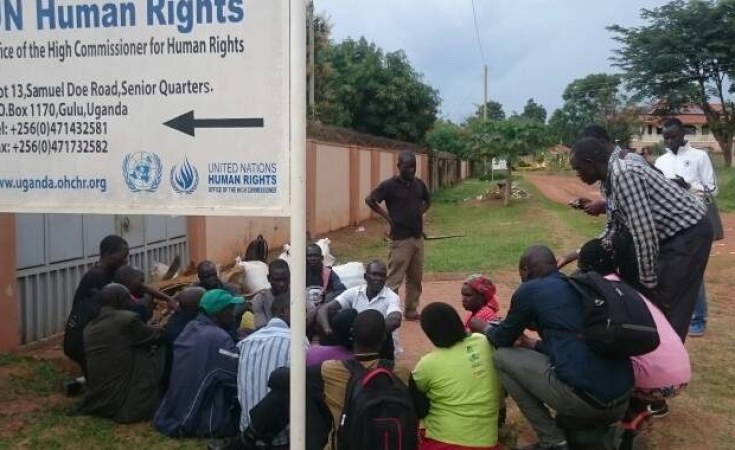Kampala — Activists and opposition in Uganda have cried foul at the government's decision to close the United Nations human rights office in the country. A letter from Uganda's foreign ministry leaked this week said the U.N. office was no longer needed because the government is capable of upholding human rights. Rights activists in the country strongly disagree.
The mandate of the U.N. High Commissioner for Human Rights effectively ends today, February 9, three years after it was last renewed.
Human rights activists say the government of Uganda has been playing hide and seek whenever renewal of the mandate came up.
The government in a letter dated February 3 said that due to the prevailing peace throughout the country, coupled with strong national human rights institutions and a vibrant civil society with the capacity to monitor, promote and protect human rights in Uganda, it will not renew the mandate of the office.
Livingstone Sewanyana, director of a local NGO, the Foundation for Human Rights Initiative, tells VOA that the closure is surprising, but he sees it as part of a larger trend.
"However, for the last couple of years, we are aware that Uganda's civil society has been weakening," he said. "The civic space has been shrinking. And increasingly we are also aware that the Uganda human rights commission's capacity has been growing less and less. Now, it is the time to rebuild that."
In February 2021, after Uganda's general elections, Bobi Wine, the leader of the opposition National Unity Party platform, delivered a petition to the U.N. human rights office in Kampala.
The petition was to protest human rights abuses and abductions of his supporters in the run up to and after that year's presidential election, won by longtime President Yoweri Museveni. Journalists covering the petition were beaten up in front of the office.
Speaking to VOA, Wine says the abductions continue. He says the party does not have any trust in the National Human Rights Commission office to deliver justice to victims and their families.
"But I'm not shocked. I'm not surprised. And I don't think any Ugandan should be surprised. That is General Museveni's modus operandi. Whenever he's called to account in regards to human rights violations, he will react in a rather ominous way."
Reacting to the rights office closure, the U.S. ambassador to Uganda, Natalie Brown, said that a society does not advance if it does not respect the human rights of its citizens.
Brown called for all Ugandans to speak up when rights are violated and seek help from civil society.
"There are many ways to protect those rights. They can be enshrined in law, but we have to uphold the law. And we have to hold security forces and elected officials, and those in executive positions, they have to be accountable when individual's rights are violated," she said.
The Kampala office of the U.N. High Commissioner for Human Rights was established in 2006 to focus on the human rights situation in conflict affected areas in north and eastern Uganda but was later expanded to the rest of the country.
The Ugandan government says after the Kampala office is closed, it will continue its cooperation with U.N. human rights officials through their headquarters or their permanent mission in Geneva.


